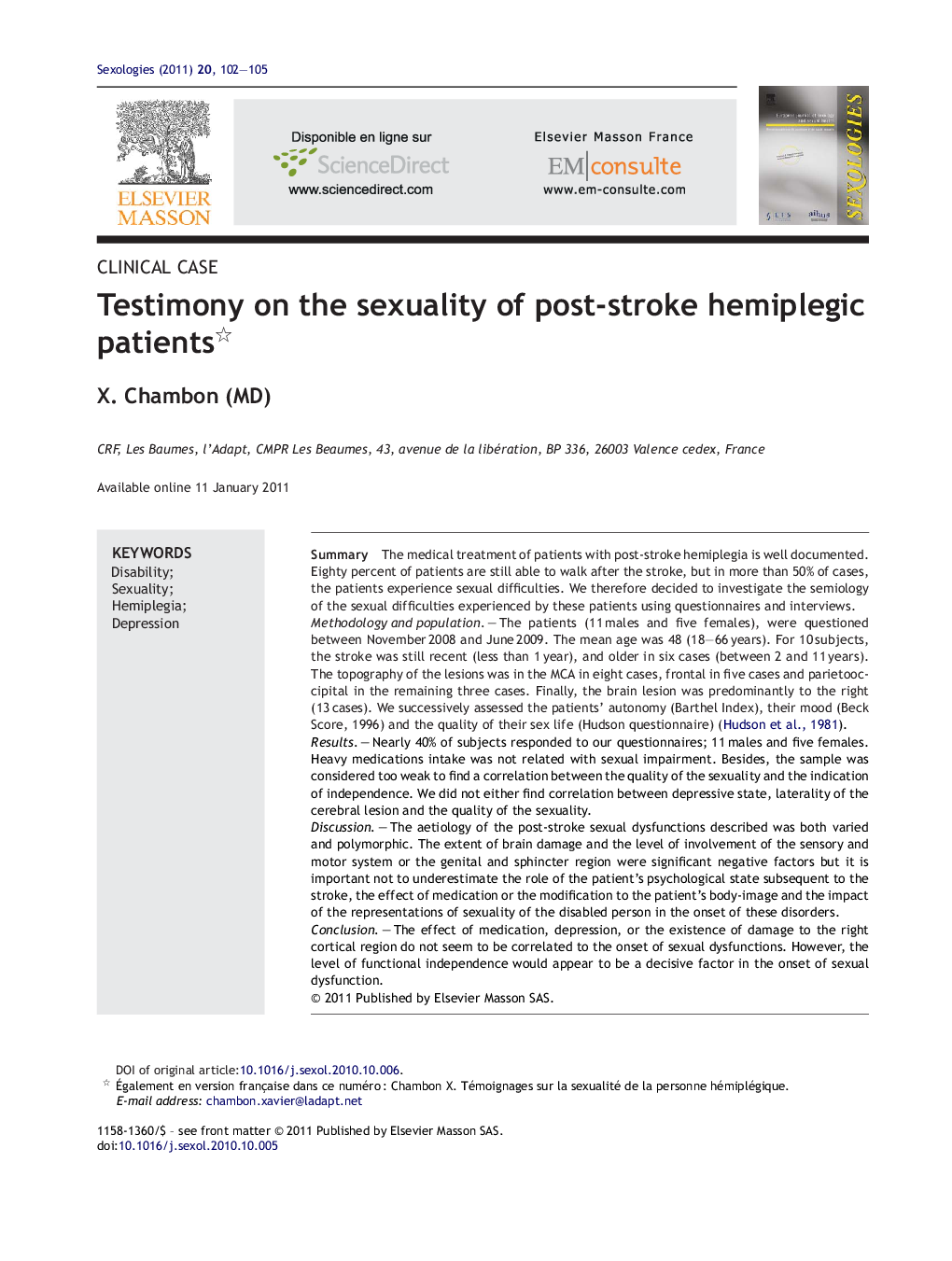| کد مقاله | کد نشریه | سال انتشار | مقاله انگلیسی | نسخه تمام متن |
|---|---|---|---|---|
| 343123 | 549290 | 2011 | 4 صفحه PDF | دانلود رایگان |

SummaryThe medical treatment of patients with post-stroke hemiplegia is well documented. Eighty percent of patients are still able to walk after the stroke, but in more than 50% of cases, the patients experience sexual difficulties. We therefore decided to investigate the semiology of the sexual difficulties experienced by these patients using questionnaires and interviews.Methodology and populationThe patients (11 males and five females), were questioned between November 2008 and June 2009. The mean age was 48 (18–66 years). For 10 subjects, the stroke was still recent (less than 1 year), and older in six cases (between 2 and 11 years). The topography of the lesions was in the MCA in eight cases, frontal in five cases and parietooccipital in the remaining three cases. Finally, the brain lesion was predominantly to the right (13 cases). We successively assessed the patients’ autonomy (Barthel Index), their mood (Beck Score, 1996) and the quality of their sex life (Hudson questionnaire) (Hudson et al., 1981).ResultsNearly 40% of subjects responded to our questionnaires; 11 males and five females. Heavy medications intake was not related with sexual impairment. Besides, the sample was considered too weak to find a correlation between the quality of the sexuality and the indication of independence. We did not either find correlation between depressive state, laterality of the cerebral lesion and the quality of the sexuality.DiscussionThe aetiology of the post-stroke sexual dysfunctions described was both varied and polymorphic. The extent of brain damage and the level of involvement of the sensory and motor system or the genital and sphincter region were significant negative factors but it is important not to underestimate the role of the patient's psychological state subsequent to the stroke, the effect of medication or the modification to the patient's body-image and the impact of the representations of sexuality of the disabled person in the onset of these disorders.ConclusionThe effect of medication, depression, or the existence of damage to the right cortical region do not seem to be correlated to the onset of sexual dysfunctions. However, the level of functional independence would appear to be a decisive factor in the onset of sexual dysfunction.
Journal: Sexologies - Volume 20, Issue 2, April–June 2011, Pages 102–105